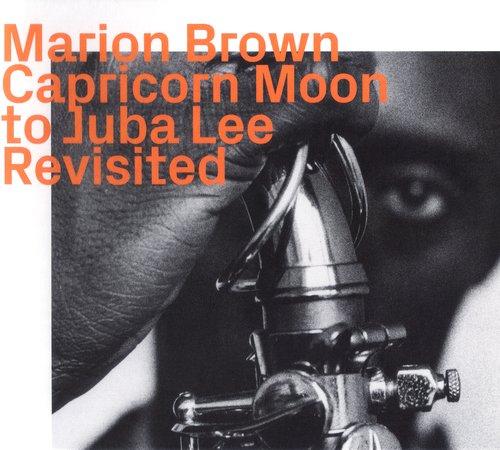
Artist: Marion Brown
Album: Capricorn Moon to Juba Lee Revisited
Genre: Free Jazz
Label: Hat Hut Records
Released: 2019
Quality: FLAC (tracks+.cue)
Tracklist:
- Capricorn Moon (Brown) - 22:30
- Mephistopheles (Shorter) - 18:16
- Juba Lee (Brown) - 12:36
- Iditus (Shorter) - 12:22
DOWNLOAD FROM FILECAT.NET >>>
- Personnel:
- Marion Brown - alto saxophone
- Alan Shorter - trumpet
- Grachan Moncur III - trombone (#3,4)
- Bennie Maupin - tenor saxophone (#3,4)
- Dave Burrell - piano (#3,4)
- Reggie Johnson, Ronnie Boykins (#1) - double bass
- Rashied Ali (#1,2), Beaver Harris (#3,4) - drums
The release of this album is an event momentous enough to warrant repeating the preamble to the previously published review of Albert Ayler's Quartets 1964: Spirits To Ghosts Revisited....
Before considering the music on this disc, something else has to be celebrated—the resurrection of Werner X. Uehlinger's Hat Hut label (see past profiles). Founded in 1975, the Swiss-based company's hatOLOGY series championed European and American outer-limits jazz, producing a large catalogue of newly recorded and legacy material. Sadly, in 2016, financial pressures obliged Uehlinger to sell the back catalogue and the hatOLOGY name to Outhere Music. But just three years later, Uehlinger and Hat Hut are back—with hatOLOGY replaced by ezz-thetics, and a second series, Revisited, dedicated to historic reissues from the 1960s. You can't keep a good man down.
Marion Brown's Capricorn Moon To Juba Lee Revisited is released simultaneously with Ayler's Quartets as the opening salvo in the Revisited series. Like the Ayler album, Brown's collects two separately released LPs on one disc. Tracks one and two were first issued as Marion Brown Quartet (ESP, 1966). Tracks three and four were first released as Juba-Lee (Fontana, 1967). Both LPs were recorded in New York, the first in 1965, the second in 1966. On all tracks, Brown shares the frontline and the composing with Alan Shorter, the elder brother of Wayne Shorter.
Brown was an important figure in twentieth-century jazz. In 1965 he was featured on Archie Shepp's Fire Music and John Coltrane's game changing Ascension (both Impulse). Shorter is less widely remembered than he deserves to be. He is probably best known for appearing on Shepp's Impulse debut, Four For Trane, in 1964. Between them, during the heady mid 1960s, Brown and Shorter, both of them ferocious players and striking composers, made a mark on some important milestones in 20th century jazz. And though history has accorded the Coltrane and Shepp albums the bigger profiles, Marion Brown Quartet and Juba- Lee are top-drawer artefacts whose beauty is undimmed by the passage of time.
The lineups on all four tracks—a quartet on tracks one and two, a septet on tracks three and four—feature leading lights from the allied free-jazz and spiritual-jazz movements of the mid 1960s, plus, on the Juba-Lee material, two of Bennie Maupin's earliest appearances on record.
With Capricorn Moon To Juba Lee Revisited and Quartets 1964: Spirits To Ghosts Revisited, Hat Hut's Revisited strand is off to a flying start. More buried treasure is promised for later in 2019.
Review by Chris May

